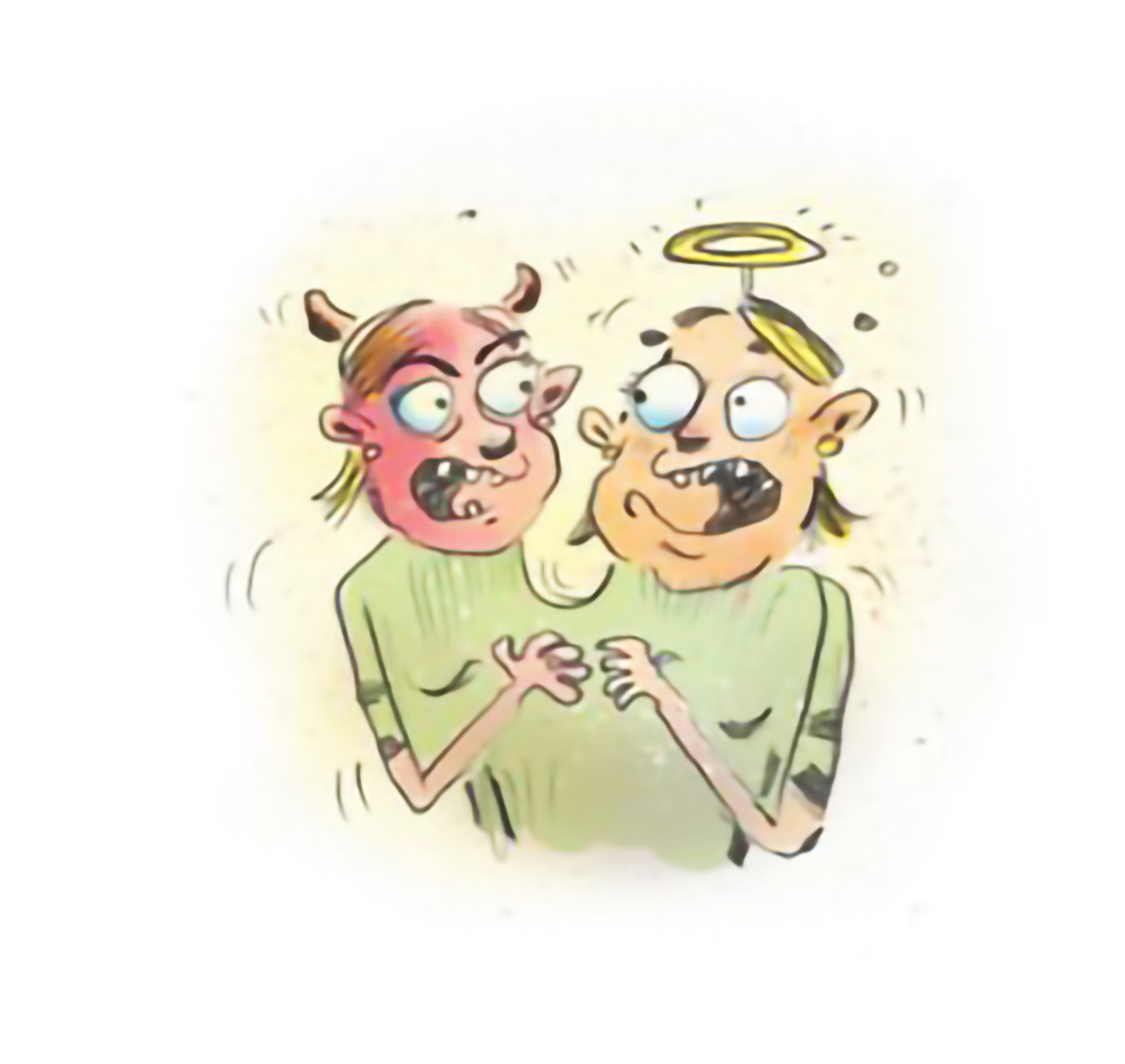So how long have I got Doc?
After several consultations your Doctor sits you down and, after arranging their features into what they believe might approximate an expression of professional compassion empathy, they say: “I am afraid your condition is idiopathic.”
You try to stay calm but never the less your voice quavers as you squeak, “Is that bad? How long do I have?”
Yes, it’s bad. Very bad. It’s bad because your Doctor just told you that she has no idea what is wrong with you. An idiopathic disease is any disease with an unknown cause or mechanism of apparently spontaneous origin. From Greek ἴδιος idios “one’s own” and πάθος pathos “suffering”, idiopathy means approximately “a disease of its own kind”. It’s no coincidence that the word idiot shares the same etymology springing as it does from the Greek word idios, meaning self. Everyone in Ancient Greece was required to vote. Exceptions were granted only to people judged to be mentally incapable. These people were regarded as being citizens only of themselves (idios) and hence we arrive, by a short and very straight path, at the English word idiot.
Doctor: The results of your biopsy are positive for dysplasia and highly suggestive of neoplasia
Patient: Positive! What a relief, I was afraid I might have cancer.
Doctor: No…uhmm…well not quite yet but…er…
Why jargon just isn’t that bright
Idiot is a word which might be reasonably applied to any medico given to the overuse of opaque obfuscous professional cant. Jargon is increasingly suspected of being the refuge of the unsure, the indecisive and the insecure. And patients are by and large thoroughly sick of it – to the extent that there is now a world-wide movement to improve health literacy by dropping jargon. It is easier to find “the kidney unit” than to wonder and wander endlessly about and in search of nephrology.
Jargon is used for a multiplicity of reasons: It facilitates understanding of technical details under discussion by a specialised group. It contributes to members of a particular group feeling that they are “part of the club” and that they belong. (No one loves jargon more than illicit drug users and criminals, not the best company for your average medical specialist.) Jargon is also often used to exclude, ostracise, isolate and belittle. Small wonder that so many of us react to it negatively and with no small measure of suspicion.
Simplify don’t justify
Even when purporting to be simple, jargon can be disconcertingly discombobulating. Einstein was not being intentionally confusing when he said, “Make things as simple as possible, but no simpler.” He is simply telling us to not overcomplicate our explanations.More importantly, he encourages us to streamline our statements to the point where they can be understood, but never so much so that we strip out essential information. Einstein inspires us to try and find the “sweet spot,” where the complex is made simple enough to be accessible, without falling into the trap of being simplistic. At face value (another metaphor) my system of Metaphorical Therapy appears obvious. Even elementary. But that is another story for another blog. The point of the reference here to metaphors is; to illustrate how effectively they can act both as an inclusive alternative and as an antidote to jargon. Regardless of your particular medical discipline, be mindful that simplicity can be profound. Do not be seduced into settling for the shallow simplistic view and never submit to the temptation to dress the prosaic in fancy leis of jargon. Doing this, outside of technical discussion with your peers, serves nothing but your ego. What’s more; it confuses and frightens people, many of whom are already suffering.
First, do no harm
Metaphors are vastly superior to jargon partly because they are complete packages of complex meaning but most of all because they are inclusive. Where jargon alienates and isolates metaphors bind and unite. Metaphors, be they linguistic or pictorial, have almost unrivalled power to make even the most complex ideas accessible to mere mortals like moi. Einstein used the metaphor of the twin paradox to describe the thought experiment in special relativity; a metaphorical twin returning from a journey into space on a rocket travelling at close to the speed of light returns to find her twin has aged more than she has. Without Schrödinger’s Cat Box metaphor any interpretation of quantum mechanics would have remained forever at the bottom of the litter-box of my mind. (BTW my advice is to not go down the Cat Box rabbit-hole you may never come out:) In summary then: From a patient’s point of view jargon is confusing, alienating and down-right frightening. That’s why I heartily recommend the alternative use of everyday language and metaphors to explain complex subjects. In fact, the more complicated the subject, the more simple explanation and illustration are required.
Primum non nocere – First do no harm is the lynchpin of The Hippocratic Oath. Jargon does harm. Drop it.
Some thoughts on how to go about the surgical removal of excess jargon (and inoculation against reinfection):
- Swap jargon for plain language. It’s not that hard. There is even a resource for it here: http://www.dhhs.tas.gov.au/__data/assets/pdf_file/0011/166565/B_04_2014_0730_Word_and_phrase_swap.pdf
- Use the active voice in written communication: Eg. The active; take one tablet in themorning as opposed to the passive; one tablet should be taken in the morning.
- Use ‘you’ and ‘we’ to talk directly to the person you’re speaking to.
- Keep your sentences short. The full stop is your friend.
- Avoid clichés.
- Explain any jargon or technical language you feel you can’t avoid through simple language or by the use of appropriate metaphors.




